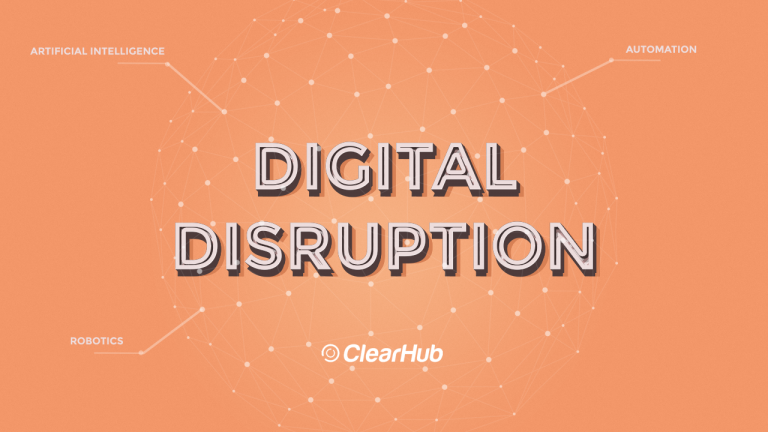
Evie Jenkins
Gig Economy: The End of Employment?
- January 4, 2022
- , 1:00 pm
- , Hiring an IT Contractor
Change is human nature. Sometimes it’s powerful. At other times, subtle. Change can be painful, liberating, scary, exciting – or all of that, at once.
Regardless of how we perceive it, change is inevitable. Humans have experienced it throughout our tiny blip of cosmic existence, before the invention of anything.
12,000 years ago, the Neolithic revolution transformed human societies from hunter gatherer tribes, into farming communities. Slowly, we became experts of the land.
In the 1700s, the Agricultural Revolution ended the need for people to work the land. We gained powerful new tools.
Then came the Industrial Revolution. We gained power-driven machinery and factory production. We automated long, labour-intensive processes for the first time.
And progress from that point snowballed, and has done ever since.
Today, we live in an age of rapid transformation. Not centuries, or decades – not even years.
Welcome to the Technology Age – where the way work is in a constant state of transformation, with tidal waves of disruption.
“The size, speed and global nature of the current Information and Technology Age make all the previous revolutions seem like mere warning tremors.”
The Information and Technology revolution, like it’s slower, more localised predecessors, is fundamentally changing the nature of work, the structure of labour and the attitudes of employers and employees – both at home and at work.
We live in an age of change
The full implications are difficult to define, but several patterns can now be mapped with a degree of certainty.
And the timeline will include:
- Artificial intelligence, with software robots replacing people in many jobs
- Virtual and augmented reality – literally changing the way we see and interact with the world
- The mass production of driverless vehicles, disrupting how we travel
- Perhaps most important of all – the maturation of the gig economy
These areas, and the way that technology helps us to collaborate, will challenge the very nature of work itself.
Digital disruption has already transformed your life
The world of work has changed dramatically – especially over the last few years, as the Covid-19 pandemic took hold of the planet.
But long before Covid was forcing the hands of workers and employers, digital disruption was moving in the direction we all find ourselves travelling now: towards software-controlled, automation-heavy digital-over-physical interactions.

Digital disruption has blurred the boundaries between employment, contracting (freelance), remote work and digital staff.
Consider Uber’s influence in the Taxi industry, or AirBnB’s disruption of hotels. Or what about Amazon’s influence on traditional book stores, and commerce in general? Or the impact of Netflix on traditional television distribution?
But – it’s nothing new.
The term “Creative Destruction” was first coined by Joseph Schumpter way back in 1940, to describe the way technological progress improves the lives of many, at the cost of a few.
What is digital disruption?
Digital disruption is when new digital technologies and business models affect the value proposition of existing goods and services.
Artificial intelligence (AI), robotics and automation are shaping the future of the global workforce. Especially in relation to the gig economy.
A gig economy is one in which companies use freelance talent on frequent, short-term contracts.
In the UK alone, 7.25 million people are expected to be working in the gig economy in 2022.
By 2030, between 75 million and 375 million workers (3-14% of the global workforce) will need to switch occupational categories because of automation technologies that include AI and robotics, according to McKinsey.
The rise of the gig economy
The lines between traditional work and contracting are blurring daily.
You may Intuitively think you understand the differences between permanent and contact staff. But, on inspection, ask yourself: how many of these assumptions hold weight?
Do you assume that contractors are highly skilled specialists, used for short-term bursts of extremely focused work – whereas your full-time employees in it for the long haul?
I did too.
As the contractor market continues to grow, and entire sectors become disrupted by gig economy workers, these arguments do not withstand scrutiny.
The conclusions are fairly stark.
Employment vs full-time = £0
Once you add the costs of a person’s employment AND take into account the impact of hiring on the business, the cost savings versus contractors simply no longer exist.
Basically, this changes the very nature of a full-time workforce.
Imagine for a moment that your entire marketing team is made of contractors – used as and when you need them, to match their skills and your needs.
Even if you use the same contractors all the time, they’ll be no more expensive to the business than employing directly.
Over the next three years, the average casual workforce will grow by 30% – Beeline
In 2020, 2.2 million people in the UK were self-employed freelancers. With the onset of the so-called “Great Resignation”, that number is steadily rising, year on year.
Globally, with side hacks and casual work considered, the freelance workforce could make up to a third of the total workforce.
70% of organisations are looking to expand their external workforce, so if you’ve not yet been disrupted by contractors in your organisation, the current trend suggests it is just a matter of time.

The impact of the gig economy now
Deliveroo, Uber and other companies in their guise often become the focus of any conversation around the gig economy. And sure enough, those companies grew massively during coronavirus lockdowns – but it’s in tech and software development that the effects of the gig economy are being felt the most right now.
And this has triggered fresh innovations.
You can get the most from contract workers by making sure that your existing team and freelance talent work together, fast.
This was the realisation that led me to start ClearHub. I could see that managing directors needed:
- A fast, safe solution
- Guaranteed technical skills, for quality work
- Someone who could fit into their existing team without disrupting productivity
I already had access to the Platinum-standard expertise through my company, and personal knowledge of building high-performing agile teams.
So, it was a logical step that we could use this combination to help other companies realise the benefits of the gig economy, with our expert guidance and support.
As non-traditional forms of talent continue to grow in importance, tech and software companies will need new strategies to attract and manage contractors and freelancers. That will mean implementing an entirely new approach – including knowing how to get contractors and staff to work together in complete harmony.
While you may already have some processes in place to help with this, the majority of companies have yet to fully embrace the gig economy.
That’s where we come in.
Welcome to the future of work
ClearHub specialises in finding the best Atlassian freelancers – the people who can propel businesses into the next phase of growth.
Want to know more about how the gig economy can work for you? Get in touch with the ClearHub team today – call +44 (0) 2381 157811 or send your message to info@clearhub.tech.



